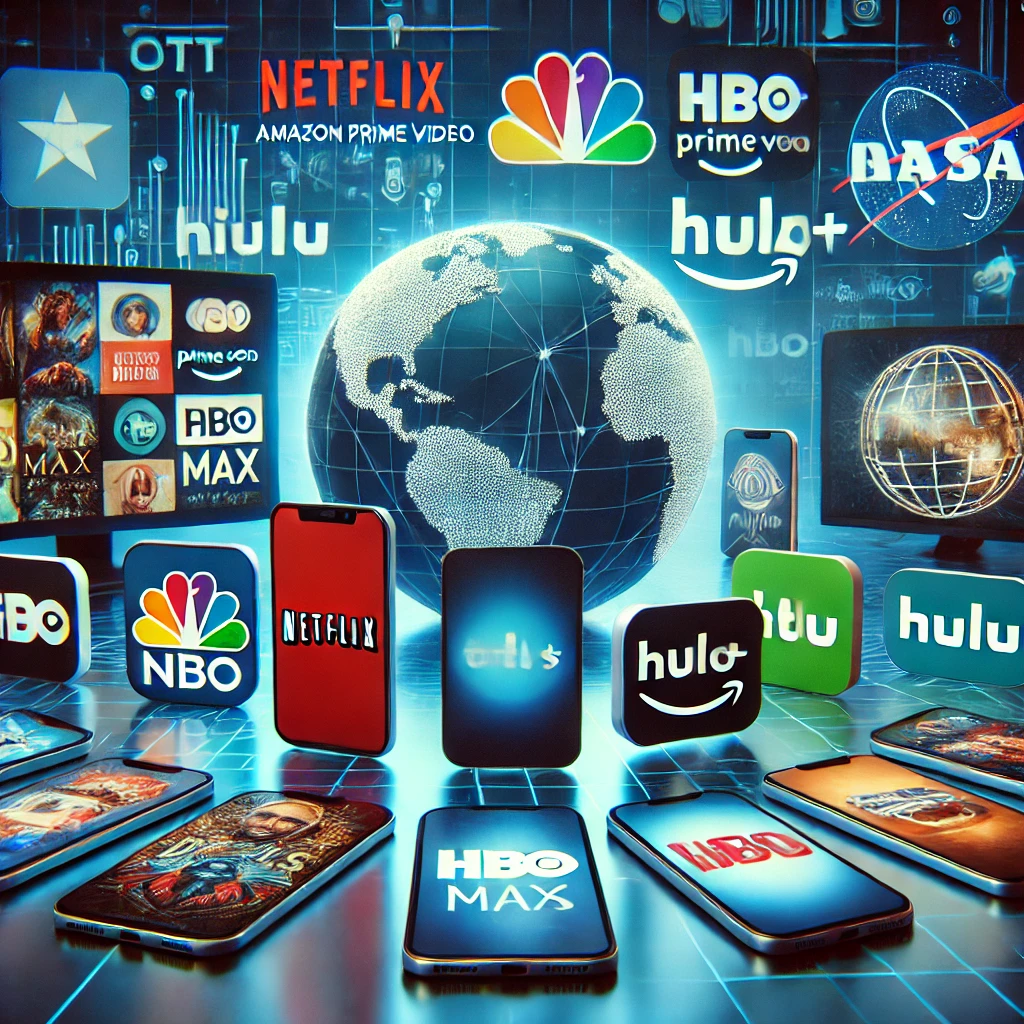Headings
A critical review of OTT platforms in 2024
In today’s digital age, Over-The-Top (OTT) platforms have become an integral part of our daily lives. This blog post is presenting a critical review of OTT platforms in 2024. From binge-watching popular series to discovering niche documentaries, these platforms offer a vast array of content tailored to diverse tastes and preferences. As a global audience aged 15-60 years navigates this digital landscape, it’s essential to critically examine the major players in the OTT space.
This review explores the strengths and weaknesses of some of the leading OTT platforms in 2024.
Netflix: The pioneering giant with new challenges
Netflix remains one of the most influential OTT platforms in the world. With over 230 million subscribers, it continues to set trends in the industry. Netflix’s ability to produce high-quality original content is unmatched. Series like Stranger Things and The Crown have not only captivated global audiences but also redefined modern storytelling.
However, Netflix is facing significant challenges. The platform’s aggressive expansion into original content has led to increased costs, resulting in higher subscription prices. For some users, particularly in developing markets, these price hikes can be a deterrent. Furthermore, as other platforms continue to grow, Netflix’s dominance is no longer guaranteed. The key to Netflix’s future success will be its ability to innovate while maintaining affordability and quality.
Amazon Prime Video: a versatile platform with global reach
Amazon Prime Video is more than just a streaming service; it’s a part of the broader Amazon ecosystem. This integration gives it a unique advantage. A single Prime subscription provides access to a vast library of movies, TV shows, and even music. This has made Amazon Prime Video particularly popular among a global audience looking for value beyond just entertainment.
One of Amazon Prime Video’s strengths is its diverse content library. The platform has successfully tapped into regional markets by producing content in multiple languages, including Hindi, Tamil, and Telugu. Shows like The Family Man have become cultural phenomena in India, reflecting Prime Video’s ability to cater to local tastes while appealing to a global audience.
However, the platform is not without its drawbacks. The user interface can be overwhelming, and discovering new content isn’t always straightforward. Despite these challenges, Amazon Prime Video remains a strong contender in the OTT market, especially for those who value variety and integration with Amazon’s other services.
Disney+: The power of nostalgia and family-friendly content
Disney+ has quickly established itself as a favorite among families and fans of Disney’s vast catalog. The platform’s content ranges from classic Disney animations to the latest Marvel and Star Wars releases, making it a go-to for both nostalgic adults and younger viewers.
One of Disney+’s greatest strengths is its brand loyalty. Fans of Disney, Marvel, and Star Wars are drawn to the platform because of its exclusive content. Shows like The Mandalorian have added to its appeal, bringing in a broader audience beyond just families.
However, Disney+ is somewhat limited in its content diversity. While it excels in family-friendly and franchise content, it lacks the broad genre variety found on platforms like Netflix. Additionally, the platform has been slower in releasing new original content, which could affect subscriber retention in the long term.
Hulu: flexibility with limitations
Hulu offers a unique combination of live TV and on-demand streaming, making it a versatile choice for viewers who want both options. The platform’s ability to stream current TV shows shortly after they air has made it popular among U.S. viewers who are transitioning away from traditional cable.
Hulu’s original content, such as The Handmaid’s Tale, has also garnered critical acclaim and a loyal following. However, Hulu’s reach is primarily limited to the U.S., which restricts its global impact. For international audiences, accessing Hulu can be challenging, often requiring a VPN and additional steps.
Moreover, while Hulu’s ad-supported tier makes it more affordable, it can detract from the viewing experience for those who prefer uninterrupted content. Despite these limitations, Hulu’s mix of live and on-demand content makes it a valuable option for U.S. viewers seeking flexibility.
HBO Max: premium content for discerning viewers
HBO Max is synonymous with premium entertainment. Known for its high-quality productions, the platform offers a curated selection of series and movies that appeal to a sophisticated audience. Shows like Succession and Game of Thrones have set the bar for storytelling and production value.
However, HBO Max comes with a higher price tag, which may be prohibitive for some viewers. The platform’s focus on quality over quantity means that its content library, while impressive, is not as extensive as some of its competitors. Additionally, the user interface has received mixed reviews, with some users finding it less intuitive than other platforms.
For those who prioritize quality and are willing to pay a premium, HBO Max offers an unmatched viewing experience. But for viewers on a budget, the cost may outweigh the benefits.
Navigating the review of OTT platforms
The key finding in this post is about review of ott platforms. The review of OTT platforms in 2024 offers something for everyone. From Netflix’s vast content library to HBO Max’s premium offerings, each platform has its strengths and challenges. For a worldwide audience aged 15-60 years, choosing the right platform depends on individual preferences, budget, and content needs.
As the industry continues to evolve, these platforms must adapt to meet the diverse demands of a global audience. Whether it’s through innovative content, competitive pricing, or improved user experiences, the future of OTT will be shaped by how well these platforms understand and serve their viewers.
